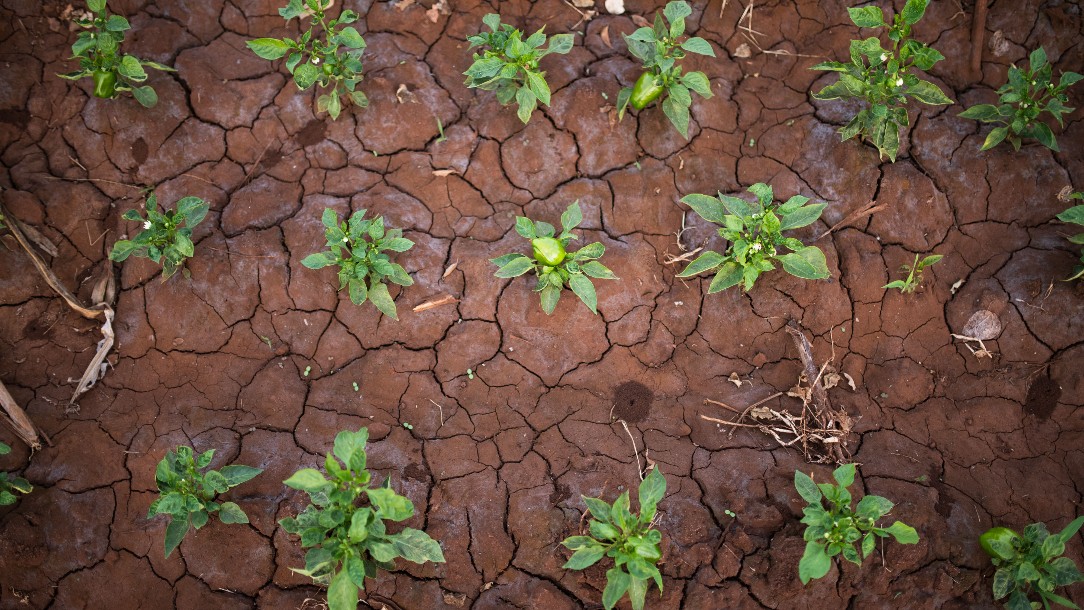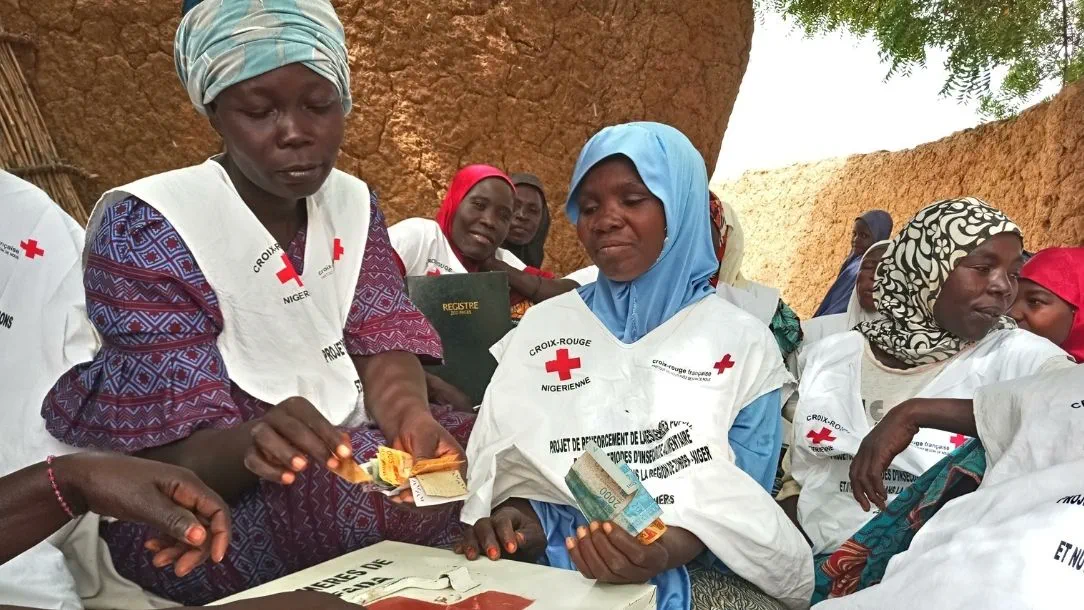Somalia drought: how the Red Cross is helping families facing a devastating food crisis
A catastrophic, deadly emergency is unfolding in Somalia, with 43,000 lives lost in 2022 alone to the devastating food crisis. Humanitarian agencies are working around the clock to provide much-needed support and aid. We must pull together and act now.

Midwife Nimo Ali attends to Lulhashi, along with her two year old son Safvan Saed and a pregnant mother. She has six children and the drought has badly affected her family.
Drought in Somalia is causing a humanitarian crisis: the Red Cross is helping
The impacts of food insecurity in Somalia are horrifying. In parts of Somalia, East Africa, more than 3 million people across the country are struggling to access the food they need. In 2022 alone, 43,000 people died because of this crisis in Somalia. Families are at breaking point and facing a life-or-death situation.
In communities in parts of Somalia, the worst is already happening. It's a fight to keep living and the situation is getting harder for people by the day. The choices being made, just to get the very basics to survive, are horrifying and the situation is getting harder for people by the day.
In rural areas, families are selling their last cow or goat and leaving their homes to source food elsewhere. In towns and cities, bare food markets and sky-high prices are cutting off people's only supply of food.
These are resilient communities, and their determination and strength cannot be underestimated, but after back-to-back emergencies, such as the Covid-19 pandemic and the most severe drought in 40 years, their options are running out and it's becoming harder to carry on.
Richard Blewitt, executive director of international at the British Red Cross, recently returned from Somalia and says:
“Communities here are exhausted. They struggle with access to water, they struggle to access healthcare and they struggle with isolation.
“Humanitarian agencies are working around the clock to support affected communities but we cannot do it alone.
Investing in communities to adapt, along with bolder, long-lasting, coordinated solutions, are needed to tackle the root causes. We can't sit still. The international community came together in 2017 to avert catastrophe. We can and must do this again.
Richard Blewitt, executive director of International at the British Red Cross, discusses the severe Somalia drought.
An urgent update from Somalia | Africa Food Crisis
"If the rains in the next two months fail, there will be deaths in this community."
Who is most affected by the growing food crisis in Somalia?
Whole communities are bearing the full brunt of the worsening food crisis but sadly, we know that children are disproportionately affected. Devastatingly, half of the 43,000 people who died in Somalia in 2022 at the hands of the crisis were children under five.
An International Committee of the Red Cross (ICRC) run stabilisation centre in Baidoa, Somalia, has seen the number of children with severe acute malnutrition and related medical problems increase from 82 a year ago to 486 in 2022.
And data from the latest nutrition surveys in Baidoa, in Southern Somalia, show 67% of children are acutely malnourished – that is almost 60,000 children.
Families in Baidoa and Bay districts are being forced to bury their children at home and on the way to food and nutrition centres. If they do get the help they need, tragically some are too weak to survive after the long journey.
For those children affected by the crisis, the impact on their health is incredibly dangerous. Acute malnutrition means children will lose too much weight too quickly, having a severe impact on their physical growth, as well as psychological development.
Many children are also missing out on education. Rising food prices are forcing families to take their children out of school so they can work or beg, or because they can no longer afford the fees.
Young girls are at particular risk, being forced into early marriages so parents have one fewer to provide for. Women are also likely to be most affected. As food becomes scarce, women often eat smaller portions or skip meals so that their children can eat.
What are the causes of drought in Somalia?
Climate change is triggering extreme weather and has worsened the impact of the drought in Somalia. A record-breaking five failed rainy seasons have plunged Somalia into severe drought, the worst in 40 years.
And now, due to the Indian Ocean Dipole and El Niño phenomena, heavy rains have hit the region hard since the end of October. They have triggered terrible floods with devastating consequences for both lives, livelihoods and food security, the short-term displacement of hundreds of thousands of people, and the heightened risk of water-borne disease and desert locusts.
Yet another climate shock is pushing some of the most resilient and resourceful people in the world to their breaking point.
Somali Red Crescent co-ordinator Bakal is working with people on the ground and has seen the effects of the failed rains over the last four years.
“If the rains don’t come very soon it will be disastrous," says Bakal. "But even if the rains come, people who lost their farms and their animals over the past four years, need to be supported until they are resilient. Otherwise, more people will lose their lives.”
What other factors have caused the FOOD crisis in Somalia?
While climate change and drought are major causes of the food crisis in Somalia, there are others too.
Conflict, the knock-on impacts of the Covid-19 pandemic and the escalating violence in Ukraine, have caused a surge in global grain, fuel and fertiliser prices for the poorest countries, pushing basic items out of reach.
In Somalia, the rising price of fuel has led to an increase in water prices during the worst drought in 40 years.
Can we avert a catastrophe in Somalia?
There is hope and together, we can get help to where it is needed. Five years ago the international community pulled together to avert a catastrophe. With swift, emergency action and humanitarian assistance, lives can be saved again.
There are solutions to this deadly food crisis. With people pushed to the very edge, losing their loved ones and livelihoods - we shouldn't give up on them. With swift, emergency action, lives can be saved again. But only if we pull together, and only if we tackle root causes.

2-year-old Nimo is weighed at a Somalia Red Crescent mobile health clinic in Qaloato village. She has to be weighed every 14 days. When she first arrived at the clinic, she was extremely malnourished and very ill. After receiving vital treatment, she is slowly recovering.
How are charities supporting people affected by the hunger crisis in Somalia?
The food crisis is the biggest issue Somalia is currently facing and Humanitarian agencies are working tirelessly to avert a catastrophe.
Red Cross and Red Crescent teams are on the ground in Somalia, providing humanitarian assistance and supporting communities who have been hit hardest with water, food, immediate financial help, nutrition services, and healthcare - basics that are lifesaving right now.
The Somali Red Crescent has already supported around 200,000 families in their drought response through mobile health teams in the most affected areas.
In the hardest hit areas, Red Cross and Red Crescent teams are also providing clean water and immunisations to prevent the spread of disease, and are scaling up to reach 560,000 more people.
One ICRC run stabilisation centre in the badly affected region of Baidoa, has been providing specialised, life-saving nutritional care to the growing numbers of children admitted there.
At a Somali Red Crescent mobile health clinic in Qaloàto village, children are now getting the treatment they desperately need. Nimo, pictured above, was very ill when she first arrived and needs to be monitored every two weeks. Her mother, Hamda, says:
“The volunteers from Somali Red Crescent Society have become a hope to me. They helped me face the situation - one of the most difficult I have been in, in my life.
I was so worried, and so was Nimo's father. The only thing that makes me happy now is that she's doing better. But when I think about it, I get worried from the bad memories.
Although Nimo is slowly recovering, Hamda says that life as she knows it has changed.
"We are nomadic people. But now we don’t have any work, and very few animals to sell. The animals we can find are thirsty, and we cannot find food for them."
Addressing the root causes of the food crisis
As well as helping those in critical situations in Somalia, the Red Cross is supporting people to address the long-term problems of the crisis. We’re helping people adapt to the effects of climate change and building their long-term resilience to cope and adapt. In rural areas were helping farming communities with tools, vital skills, and training.
That includes providing seeds that can grow in times of drought and building irrigation systems. In collaboration with the Ministry of Agriculture and private agri-businesses, the ICRC has been supporting local farming cooperatives, which are now producing certified seeds for the first time in over three decades.
Bakal asks the international community to pay urgent attention to the hunger crisis in Somalia.
We are grateful to the international community. We rely on humanitarian organisations, but it's not enough. People are going to lose their lives. We are appealing to all our partners and donors to focus and look after us. There is hope.
How can people help affected communities in Somalia?
There are solutions to this deadly food crisis and there is something you can do to help. The Red Cross is working in the worst affected areas across Somalia. Please help us support people to:
- Survive today: by providing emergency support to people hit hardest with water, food, immediate financial help, nutrition services, and healthcare.
- Be prepared for the coming months: with cash support so that people can buy and save what they want with dignity.
- Face the future: by continuing to help people stuck in this cycle of extreme weather – building resilience with tools, financial help, and vital skills.
How your donation could help people in Somalia
£13 could provide a person with a month's supply of healthy and nutritious food
£20 could buy vaccines to treat three animals to help keep them healthy
£100 could help buy two goats for a family facing extreme hunger. This can provide a source of income for the family as well as milk for their young children.
This is urgent. Please help us continue our work.
Your donation to the Africa Food Crisis Appeal will help us to reach more people with vital help
DONATE NOW
What is food insecurity?
'Food insecurity’ is a term you might have seen appearing more and more in the headlines in recent weeks. But what does it actually mean?

Africa hunger crisis: more than 140 million people are now struggling to eat
Soaring food prices, conflict and climate change are plunging Africa into a severe and enduring food crisis. The British Red Cross has launched an appeal to help avert catastrophe.

Brave mothers of the Sahel
Mothers Clubs' are creating financial security across the troubled Sahel region, raising a woman's profile and creating solidarity within communities.

